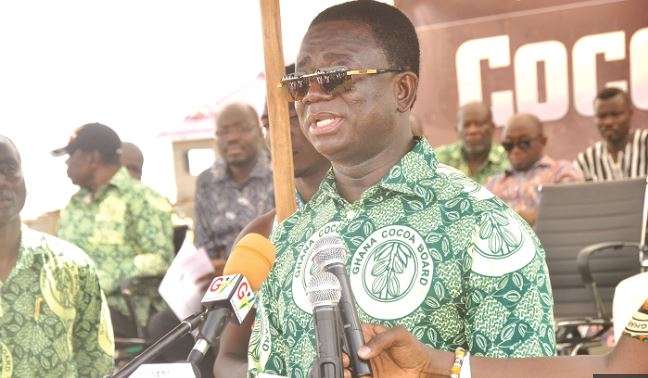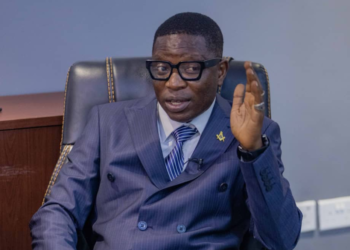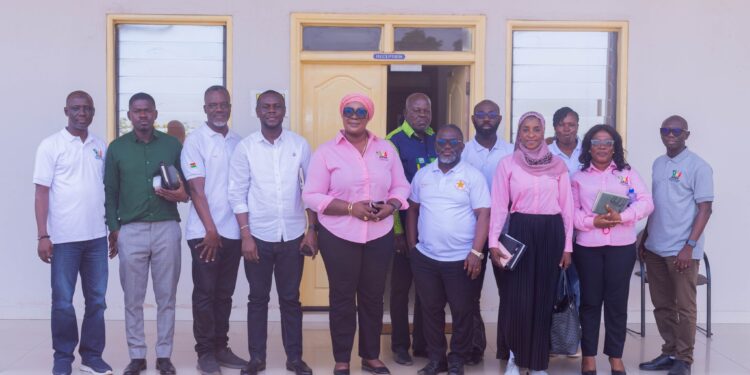Dr. Stephen Kwabena Opuni, the former CEO of COCOBOD, has vehemently refuted allegations made by his successor, Joseph Boahen Aidoo, that he left the organization with depleted finances in 2017, describing the claims as entirely false and misleading.
Dr. Opuni revealed that a handing-over note, which documents the transfer of leadership, contradicts the narrative presented by Joseph Boahen Aidoo, suggesting that the current COCOBOD boss’s claims of inheriting empty coffers are grossly inaccurate and misleading.
Dr. Opuni challenged Joseph Boahen Aidoo to make the handing-over note and other relevant documents public, to allow the public to scrutinize the facts and determine the actual state of COCOBOD’s finances at the time of his departure, thereby setting the record straight and putting the controversy to rest.
“It is trite knowledge that before you secure any loan, you need to show your audited financial statement, therefore, if Joseph Boahen Aidoo wants Ghanaians to know that he inherited a broke institution, he should make COCOBOD’s audited financial statement for 2016/2017 financial year public to back his claims”.
Dr. Stephen Kwabena Opuni
Despite securing a $1.8 billion syndicated loan, COCOBOD utilized the funds to finance its operations for the 2016/2017 cocoa crop season, from October 2016 to September 2017, with a portion of the loan, as admitted by Boahen Aidoo, being used to purchase over 600,000 metric tons of cocoa beans.
Accordingly, Dr. Opuni revealed that COCOBOD entered into a forward sale agreement for 600,000 tons of cocoa at a price of $2,993.60 per ton, which was then used as collateral to secure a $1.8 billion syndicated loan from a consortium of European and international banks.
“Just multiply USD 2,993.60 by the over 600,000 stated by Mr. Boahen Aidoo, and you would come to the realization as of January 2017, COCOBOD had already bought enough cocoa from our cocoa farmers to pay off the 1.8 billion dollar syndicated loan COCOBOD secured”.
Dr. Stephen Kwabena Opuni
COCOBOD Advances Not Fully Utilized, Says Dr. Opuni
Furthermore, Dr. Stephen Kwabena Opuni stated that records indicate that despite purchasing over 600,000 metric tons of cocoa between October and December 2016, License Buying Companies (LBCs) still held funds advanced by COCOBOD as of January 2017.

These funds were intended for the LBCs to purchase additional cocoa on behalf of the Ghana Cocoa Board but remained unutilized.
Dr. Opuni revealed that, during his leadership at COCOBOD from 2014 to 2017, the organization successfully secured three syndicated loans, covering 2014/2015, 2015/2016, and 2016/2017 cocoa seasons, at a favorable interest rate of approximately 1.5% per annum.
Dr. Opuni pointed out that COCOBOD had the flexibility to tap into an additional $200 million in funding from the syndicated banks if the need arose to purchase more cocoa, providing a safety net to ensure the organization could fulfill its obligations.
Dr. Opuni argued that securing a loan at 1.5% interest was a wise decision, considering the alternative of borrowing from local banks at a much higher rate of 30% or more.
He found it perplexing that the current COCOBOD management, led by Boahen Aidoo, failed to utilize the available $200 million loan facility at a favorable interest rate, instead opting for a more costly financing option.
He condemned the decision as a stark example of egregious financial mismanagement, bordering on reckless irresponsibility.
“From January 2014 to early January 2017, COCOBOD, after taking the syndication loan, never took loans from the Central Bank/local banks to undertake any COCOBOD activity.”
Dr. Stephen Kwabena Opuni
Meanwhile, with the current global cocoa price exceeding $9,000 per ton, Ghana faces a potential loss of over $6,000 per ton, totaling approximately $2 billion, if COCOBOD fails to deliver the contracted 350,000 tons to its clients.
This significant loss looms due to COCOBOD’s inability to fulfill its existing obligations, putting a substantial dent in Ghana’s revenue.
READ ALSO: Shakira Prioritizes Her Kids’ ‘Wellbeing’ Over Dating





















